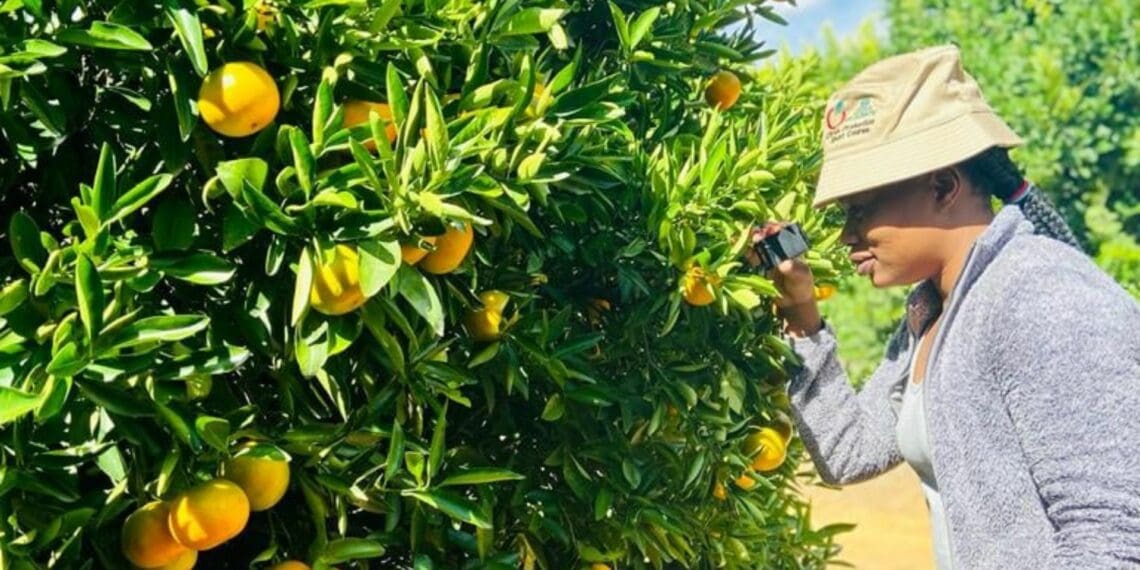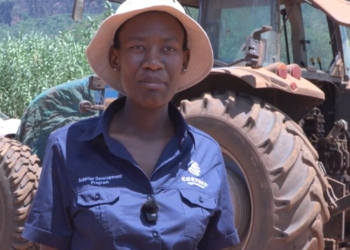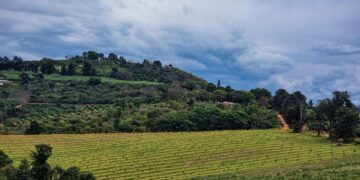Amid trade uncertainty, the chief executive officer of the Citrus Growers’ Association (CGA), Dr Boitshoko Ntshabele, said new market access is key in growing the commodity and the economy.
At the recent Agbiz roundtable discussion in the Western Cape, Ntshabele spoke, among other things, about the importance of trust, respect, and safety in any forum where parties engage with one another.
He also highlighted market access, emphasising the importance of opening up new markets while retaining access to existing ones through quality, compliance, and sustainability. He referred to this as the “Gain, Retain, and Optimise” (GRO) strategy:
- Gain: Expand into new markets through science-based market access protocols.
- Retain: Safeguard existing markets through compliance, sustainability, and quality assurance.
- Optimise: Enhance existing protocols through continuous research and development.
📢 Stand Up, Be Seen, Be Counted
We want to provide you with the most valuable, relevant information possible. Please take a few minutes to complete this short, confidential survey about your farming practices and challenges. Your feedback helps us tailor our coverage to better support the future of agriculture across Mzansi.
Growing and transforming the citrus industry
Ntshabele said the citrus industry is a driver of transformation, inclusion, and growth. The citrus industry’s Vision 260 is a quest to export 260 million 15kg cartons by 2032, with the potential to create 100 000 additional jobs.
“This alignment provides a framework for collaboration between industry and government, ensuring inclusive growth, transformation, and global competitiveness. Behind every carton of citrus shipped are communities that depend on this industry for livelihoods, education, and social stability,” he said.
Related stories
- Agbiz CEO calls for lasting solutions to boost agriculture
- Agbiz Congress: Agriculture needs infrastructure upgrade to thrive
- Citrus export forecast rises, but market access remains key
- CGA’s Dr Ntshabele charts bold citrus future for SA
He also highlighted Citrus Research International (CRI), one of the world’s leading agricultural research institutions. CRI provides growers with cutting-edge insights in plant pathology, entomology, and pre- and post-harvest management, ensuring that South Africa remains a global leader in evidence-based agriculture.
Ntshabele noted that citrus growers are not merely exporters of fruit, but also exporters of knowledge, sustainability, and shared prosperity. He emphasised that the citrus industry, and the broader fruit sector, demonstrate what is possible when science, people, and purpose come together.
Wolfe Braude, Agbiz fruit desk manager, provided an overview of South Africa’s diversified trade landscape. He explained that 36% of fruit exports go to the European Union, 17% to Asia, 15% to the Middle East, 13% to the United Kingdom, 7% to the USA, and 5% to Africa.
He compared agricultural produce exports to other exports, showing that they are nearly twice the value of iron ore exports, nearly three times that of chromium ore, 2.7 times that of South Africa’s iron and steel exports, and 1.7 times that of machinery exports.

EARLY-BIRD TICKETS ARE AVAILABLE NOW!
Africa’s biggest youth-in-agriculture gathering is back – and it’s only getting bigger!
Regulation and responsible use of remedies
A panel discussion on agricultural remedies covered a wide range of topics, including the regulation and responsible use of agricultural remedies, the necessity of these products, maximum residue limits, the unique challenges faced by smallholder farmers, and the consequences of international chemical companies withdrawing from South Africa.
Key points included:
- The quality of produce sold locally is not inferior to exported fruit; in fact, shorter cold chains often mean fresher produce.
- South Africa represents only 1.5% of the global crop protection market, making it a low-profit area for international chemical companies.
- Disinvestment by global players could deprive the country of critical research outcomes, leaving farmers dependent on outdated compounds and threatening international trade.
- South Africa’s climate is unstable and unpredictable, with diverse soils, low rainfall, endemic pests, and specific phytosanitary requirements, necessitating tailored agricultural remedies.
- Alternative approaches, such as biological products, are often species-specific and may not fully replace chemical remedies, highlighting the need for integrated pest management (IPM) programmes.
- Recent legislative updates (Act 36 of 1947, with amendments in 2023) have phased out highly hazardous pesticides, prioritised low-risk remedies, aligned local regulations with international standards, and enhanced consumer safety.
- Overall, the panel emphasised the importance of a well-designed IPM strategy that integrates chemical, biological, and cultural practices to reduce chemical use while maintaining effective pest control.
READ NEXT: South Africa Wine sets new course for responsible wine production

















